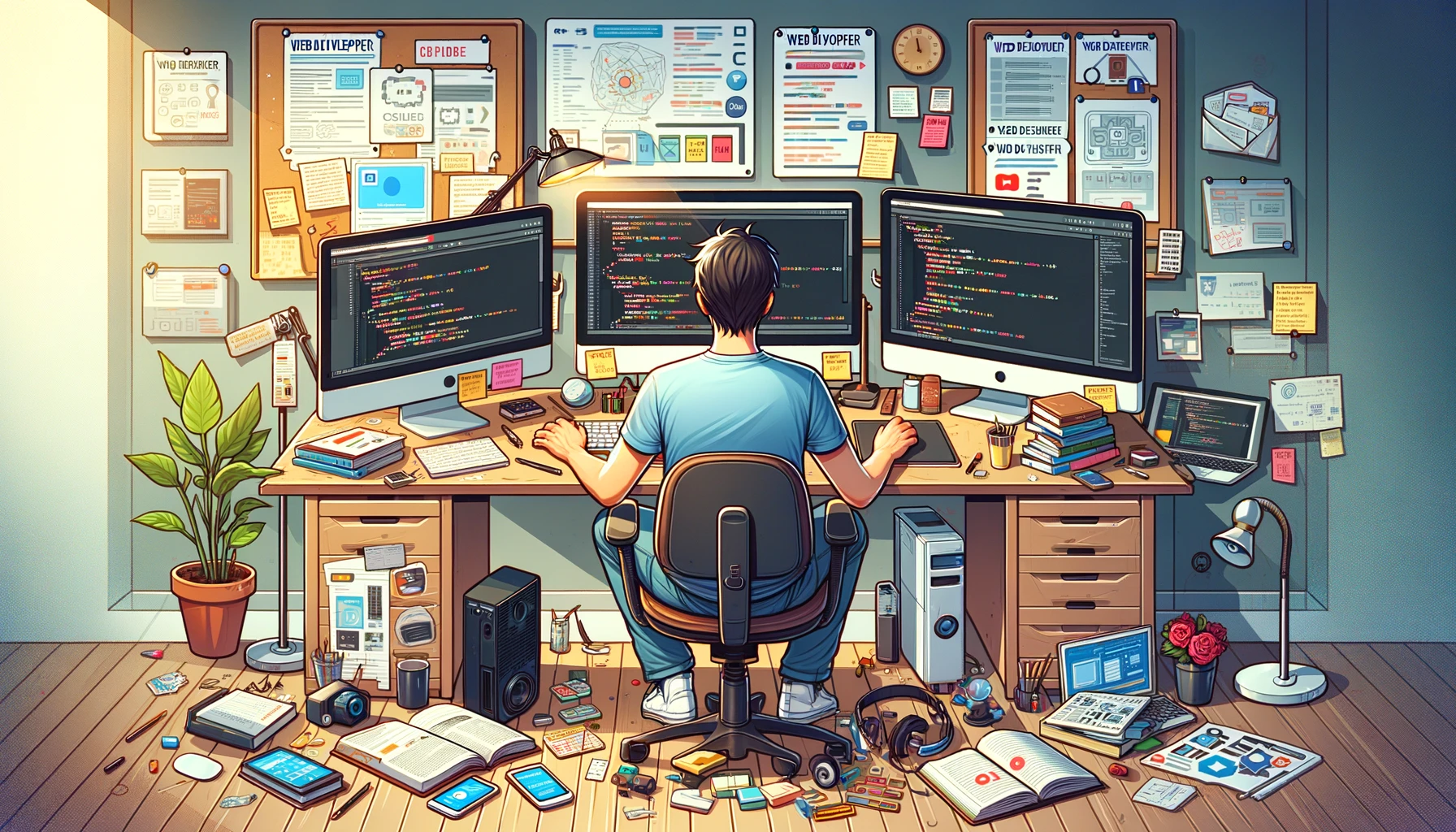Should I Learn Blockchain or AI?
Deciding between blockchain and AI is akin to choosing between two powerful forces shaping our digital future. Both are groundbreaking technologies with the potential to revolutionize industries and redefine careers. If you're at a crossroads wondering, "Should I learn blockchain or AI?", you're not alone. This pivotal decision could steer the course of your professional life. As you delve into this comprehensive guide, you'll gain insights into the intricacies of both fields, understand their unique impacts, and be better equipped to make an informed choice that aligns with your passions and career aspirations.
Introduction
Embarking on a journey to master a new technology can be a thrilling adventure. The question, "Should I learn blockchain or AI?" is not just about picking a subject to study; it's about choosing a path that could define your role in the future of tech. Let's dive in and explore what each field has to offer.
Blockchain: The Digital Ledger Revolution
Blockchain is the technology behind cryptocurrencies like Bitcoin, but its potential extends far beyond. At its core, blockchain is a decentralized ledger that provides a secure and transparent way to record transactions.
- Immutability: Once data is added to the blockchain, it's nearly impossible to alter, ensuring integrity.
- Decentralization: With no central authority, blockchain democratizes data and reduces single points of failure.
- Smart Contracts: These self-executing contracts with the terms directly written into code automate and streamline processes.
AI: The Brain Behind the Machine
Artificial Intelligence, or AI, is the simulation of human intelligence processes by machines, particularly computer systems. It encompasses anything from machine learning algorithms to neural networks and natural language processing.
- Learning: AI systems can learn and adapt to new information or stimuli from their environment.
- Reasoning: AI can solve problems through logical deduction.
- Self-correction: AI systems refine their approaches to deliver more accurate results over time.
Both blockchain and AI offer groundbreaking opportunities, but they cater to different interests and skill sets. Whether you're drawn to the cryptographic security and potential for decentralized systems that blockchain offers, or the dynamic, intelligent solutions of AI, your choice will pave the way for your tech journey.
Understanding Blockchain Technology
Peering into the world of blockchain might feel like you're unlocking a chest of digital treasures. This technology, often associated with cryptocurrencies, is much more than just Bitcoin's backbone. It's a robust architecture that's reshaping the way we think about data security and exchange.
The Basics of Blockchain
Blockchain is essentially a distributed database. Imagine a ledger that's not stored in a single location but replicated across a network of computers. This structure provides a level of security and transparency that traditional databases can't match.
- Decentralization: There's no central authority controlling the blockchain, making it inherently resistant to censorship and corruption.
- Transparency: All transactions are visible to everyone on the network, fostering a new level of trust in digital dealings.
- Security: Blockchain's use of cryptographic hashing and consensus models like Proof of Work (PoW) or Proof of Stake (PoS) make it tamper-evident and secure.
Blockchain's Potential Beyond Cryptocurrency
While blockchain started with Bitcoin, its potential stretches into numerous sectors. From supply chain management to voting systems, blockchain is paving the way for a more accountable and efficient future.
"Blockchain is the tech. Bitcoin is merely the first mainstream manifestation of its potential." – Marc Kenigsberg
As you consider whether to learn blockchain, think about the vast array of applications that could benefit from immutable records and decentralized control. It's not just about financial transactions; it's about creating a new framework for all kinds of digital interactions.
Exploring the World of Artificial Intelligence
Artificial Intelligence (AI) is the frontier of computer science, where machines are not just programmed, but also endowed with the ability to learn and think. It's a domain that's rapidly evolving, pushing the boundaries of what's possible with technology.
Understanding AI and Its Subfields
AI is an umbrella term that covers various technologies, including machine learning, deep learning, neural networks, and natural language processing. Each of these subfields offers a different approach to creating systems that can interact, understand, and make decisions.
- Machine Learning: This is the art of teaching computers to learn from data, identify patterns, and make decisions with minimal human intervention.
- Neural Networks: Inspired by the human brain, these networks are a series of algorithms that capture the relationship between various underlying variables and processes the data as a human brain would.
- Natural Language Processing (NLP): NLP gives machines the ability to read and understand human language, enabling them to communicate with us and perform tasks like translation and sentiment analysis.
The Impact of AI on Society
The implications of AI are profound, influencing everything from healthcare, where it helps diagnose diseases, to entertainment, where it powers recommendations on streaming services. AI's ability to process vast amounts of data and learn from it is its greatest strength.
"The goal is to turn data into information, and information into insight." – Carly Fiorina, former executive, president, and chair of Hewlett-Packard Co.
If you're drawn to solving complex problems, creating intelligent solutions that can adapt and improve over time, and working at the forefront of technological innovation, AI might just be the field for you. As you ponder "Should I learn blockchain or AI?", consider the transformative potential of AI and how it aligns with your interests and career goals.
